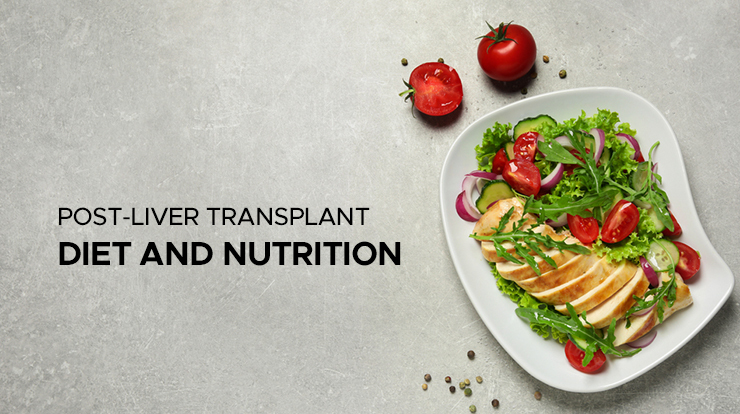
If patients adhere to the rehabilitation program, which without a doubt includes a good diet after liver transplant, as a critical component, they can improve the long-term success of their therapy. Additionally, there is no need for rocket science expertise to concur with this. For a healthy lifestyle, even the average individual has to eat a well-balanced diet once the procedure of liver transplant is done. To ensure your continued health as an individual with an impaired immune system, it is crucial to maintain the necessary food safety procedures.
After a big procedure like a liver transplant, you’ll need to take immunosuppressive drugs for the rest of your life. However, as soon as you start taking these medications, your body’s natural defence system will be greatly impacted. These medications are crucial to prevent the dangers of organ rejection. As a result, it is critical to concentrate on your food to replace all the nutrients you have lost to support your ability to adjust to the changes and shocks associated with surgery. You must concentrate on eating healthy and preparing your meals correctly.
You may need to modify your diet after liver transplant to maintain the health and function of your liver and to avoid gaining too much weight. Infections, high blood pressure, and other consequences can be avoided by maintaining a healthy weight. Together with you, your nutritionist and other members of your care team will develop a healthy eating strategy with nutrition after liver transplant that fits your needs and complements your way of life.
You must emphasize eating well after your transplant. Make sure your diet after liver transplant is properly balanced because this is very important. You don’t have to deprive yourself of food, nor do you have to avoid eating your favourite foods. Any favourite treat can be replaced with a healthier option.
In addition to slowing recovery, an increase in bad cholesterol might result in other health issues. Healthy fats, on the other hand, can increase the positive effects on your health. Consume fish from chilly waters, like tuna. Omega 3 fatty acids are found in fish, which is an excellent source of nutrition after liver transplant for your health. Nuts, vegetable oils, and vegetable butter are also excellent sources of good fats.
Any experienced and qualified Liver Transplant Surgeon in india specialist or facility with a similarly advanced medical system would advise protein to make up one-fourth of the diet for at least two months following the liver transplant as part of the rehabilitation programme. Protein should be present on your plate and in your beverages for long-term health advantages.
Fish, poultry, lean meat, and eggs are all suitable for non-vegetarians and satisfy their dietary needs. Legumes, lentils, and dairy products are also excellent sources of protein for vegetarians and vegans, who can also obtain enough protein from soy milk. Vegetarians need not worry, though. In addition to this, nuts and seeds are sources of protein. Consuming low-fat dairy products is a crucial strategy for preventing weight gain.
A healthy weight can be maintained with the help of fiber, which has many other advantages. Eat the former whole for proper fibre nutrient absorption because fresh fruits and veggies have high fibre content. Pasta and cereals made from whole-grain wheat are among the high-fiber foods in this category.
Most people should take no more than 1.5 to 2 grams of salt per day, although the suggested limit varies with age. You can get directions from the food labels. Salt has a sodium content of 2,400 milligrammes per teaspoon. Usually four weeks following transplantation, this restriction may be lifted. Consult the nutritionist who treats you for advice on nutrition after liver transplant.
Salt is frequently found in excessive quantities in processed meals.
Calcium will help to strengthen the bone, which is in danger of fractures and osteoporosis as a result of prednisone use (it is a medication for patients of liver transplantation). Whey protein and some green vegetables are calcium powerhouses. Almonds and seeds are two further sources of abundant calcium storage.
Additionally, taking prednisone puts the patient at risk for bone loss, which can be prevented by including vitamin D in your diet after liver transplant. Vitamin D is a nutrient that can be obtained through dairy products, fresh orange juice, and fatty fish.
To speed up your body’s recovery during the first few weeks following your Liver Transplant in India, you’ll need to eat well. It’s critical to consume enough calories and protein to promote wound healing and infection defense. You will benefit from including these foods in your diet after liver transplant regularly. The blood sugar level can be controlled by avoiding high sugar levels.
You can seek an appointment with Dr Vivek Vij for more help. He is the first surgeon from the Indian subcontinent to publish a series of laparoscopic donor hepatectomy in “Liver Transplantation,” and was the first to graft harvest the posterior sector for living-donor liver transplantation.


